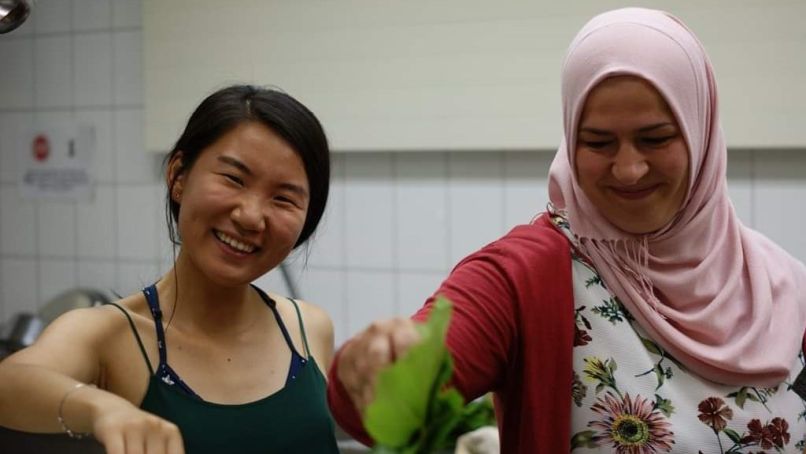Profile:
iPRAKTIKUM
iPRAKTIKUM is an experiential learning and internationalization initiative that helps students find impactful internships designed to promote global fluency and cultural competence and to deepen skills acquired in the classroom in work contexts. Placements are available at local schools and businesses in Toronto and Germany through futurGenerator, a program focused on sustainability and social innovation with hubs in Freiburg, one of Europe’s greenest cities, and Berlin, Germany’s start-up capital. iPRAKTIKUM is open to all students at the University of Toronto.

Program Details
Instructor / Program Coordinator(s):
Professor Stefan Soldovieri, Chair and Associate Professor and Helena Juenger, Assistant to the Chair and Graduate Assistant, Department of Germanic Languages and Literatures
Profile(s):
External Partners Faculty & Staff Students
Division:
Faculty of Arts & Science
Benefits to Students:
Students are given the opportunity to apply academic skills in workplace situations, gain valuable experience in innovative organizations, practice German language skills and develop global fluency, learn about international work culture, and make a difference by engaging with local and global communities.
Benefits to External Partners and the Community:
iPRAKTIKUM partners benefit from a pool of outstanding and socially engaged Canadian and international students from Canada’s top university. These are highly motivated young people with global competence and intercultural skills. We offer visibility for organizations on campus and in public-facing media.
Benefits to the University:
iPRAKTIKUM meets curricular goals by promoting student initiative, decision-making and accountability, and ensuring that students are actively engaged in posing questions, experimenting, and being creative. Programs, such as futurGenerator, provide international experiences that promote global fluency in general and specific cultural and linguistic competence related to German-speaking contexts.
Information for Interested Students:
For more information, interested students should explore the iPRAKTIKUM website, or contact Dr. Stefan Soldovieri and Helena Juenger, the iPRAKTIKUM Leads at iPRAKTIKUM@utoronto.ca.
Advice for Faculty and Staff Interested in Creating a Similar Experiential Learning Opportunity:
Developing good relationships with external organizations is key. We spend a lot of time getting to know our partners through site visits. It is also important to reach out to people on campus who can help with a successful launch. In the past few years, the University of Toronto has created considerable capacity in this area. Find out what the students you want to serve really want and decide how your unit or program can help. It is good to be clear about what you can offer that is not available elsewhere.
Gabbi Zhao, an intern, working in the kitchen at zusammen leben in Freiburg, Germany. zusammen leben runs a number of initiatives with migrants designed to foster community and understanding. (Photo by Johanna Dangel).
Details
Partnership Based
Co-Curricular Curricular
Unpaid
